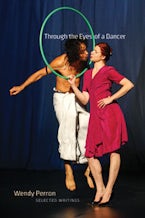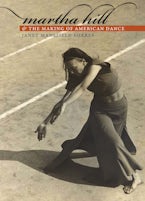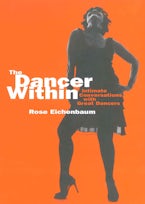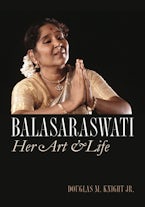- Home
- Wesleyan Dance
- performing arts
- social science
- Carmen, a Gypsy Geography
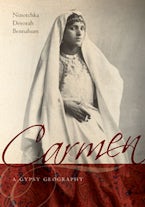
Encounters with the Gypsy female flamenco dancer throughout history
The figure of Carmen has emerged as a cipher for the unfettered female artist. Dance historian and performance theorist Ninotchka Bennahum shows us Carmen as embodied historical archive, a figure through which we come to understand the promises and dangers of nomadic, transnational identity, and the immanence of performance as an expanded historical methodology. Bennahum traces the genealogy of the female Gypsy presence in her iconic operatic role from her genesis in the ancient Mediterranean world, her emergence as flamenco artist in the architectural spaces of Islamic Spain, her persistent manifestation in Picasso, and her contemporary relevance on stage. This many-layered geography of the Gypsy dancer provides the book with its unique nonlinear form that opens new pathways to reading performance and writing history. Includes rare archival photographs of Gypsy artists.
Preface
Acknowledgments
Theoretical Introduction
Inventing Carmen: Prosper Merimee and the Gypsy Presence in Western Europe
Georges Bizet and the Genealogy of Carmen
Mythic Space and Ancient Carmen
The Gypsy Inside and Outside of History
Gypsies in the Dance Cafes of the Islamic Mediterranean
Picasso, the Bull, and Carmen
Space and Place in Islamic Spain: The Archeology of Flamenco
Carmen, a Close Reading of a Nomadic Opera
Appendix
Notes
Glossary
Bibliography
Index
NINOTCHKA DEVORAH BENNAHUM is a dance historian, choreographer. and performance theorist. She is an associate professor of theater and dance at the University of California, Santa Barbara, and the national director of dance history for American Ballet Theater. Her first book, Antonia Merce, 'La Argentina': Flamenco & the Spanish Avant-Garde, is the biography of the great Spanish modernist dance artist. Bennahum has published extensively in the areas of flamenco, Gypsy history, North African religious ritual, and the iconography of the female body in French Romantic spectacle.
"Exploring the story and dance of Carmen the opera and Carmen the woman, Bennahum—a dance historian, choreographer, and performance theorist—offers a readable historiographic examination of, as she writes in her preface, 'how the ancient Middle East, Islamic Spain, and nineteenth-century France viewed and treated women.'...Only someone with Bennahum's background could have written this book in such a way that it would appeal to dancers, historians, opera lovers, and those interested in Roma history, feminism, and issues of identity. Highly recommended (for) all readers."
~K. Lynass, Choice
""[Bennahum] is first and foremost a dance historian, but you wouldn't necessarily realize it, as she dissects her subject from the perspectives of mythography, ethnography, history, and geographyYou are not likely to find a more punctilious consideration of the historical backdrop to Bizet's opera.""
~James M. Keller, Santa Fe New Mexican
""Bennahum's informed and intelligent presentation of dance practices in many settings and her ability to look back through textual traces to discover their sources in material culture are excellent. To read these traces in this way requires the eye and heart of a dancer.""
~Evlyn Gould, Dance Chronicle
""Exploring the story and dance of Carmen the opera and Carmen the woman, Bennahum—a dance historian, choreographer, and performance theorist—offers a readable historiographic examination of, as she writes in her preface, 'how the ancient Middle East, Islamic Spain, and nineteenth-century France viewed and treated women.'Only someone with Bennahum's background could have written this book in such a way that it would appeal to dancers, historians, opera lovers, and those interested in Roma history, feminism, and issues of identity. Highly recommended (for) all readers.""
~K. Lynass, Choice
""This text, whole or in parts, is ideal for dance history, performance theory, or world performance courses. A strong read for the graduate learning to meld theory with practice, Bennahum's text fills a gap in our scholarship about gypsy culture and performance. She demonstrates a rigorous and far-reaching scope in her research that is inspiring for our field.""
~Christina Soriano, Journal of Dance Education
"Carmen: A Gypsy Geography is a significant study of the intersections between historiography, musicology, art history, literary theory, religious, cultural and dance studies, consolidated in the moving figure of Carmen, the Gypsy dancer."
~Michelle Heffner Hayes, author of Flamenco: Conflicting Histories of the Dance
"Carmen: A Gypsy Geography is a significant study of the intersections between historiography, musicology, art history, literary theory, religious, cultural and dance studies, consolidated in the moving figure of Carmen, the Gypsy dancer."
~Michelle Heffner Hayes, author of Flamenco: Conflicting Histories of the Dance
"By skillfully weaving diverse strands of research into a sophisticated narrative, Bennahum calls the reader to consider the intersections of Gypsy history and identity through the character of Carmen.""
~Sharon Friedler, professor and director of dance, Swarthmore College

